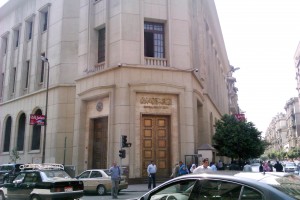
(Abdelazim Saafan/DNE Photo)
The Egyptian net international reserves have significantly increased to reach $18.916bn at the end of August 2013, according to an official statement issued by the Central Bank of Egypt (CBE) on 5 September. Foreign reserves increased to $18.9bn due to the foreign aid received from gulf countries.
Last Wednesday the Central Bank held an “exceptional auction” in which it sold $1.3bn of its foreign reserves.
“In light of the CBE’s efforts in effectively managing and monitoring the Domestic Foreign Exchange Market and supporting the banking sector to maintain its role in supporting the domestic economy,” the bank said in an official statement.
Meanwhile, Al-Borsa newspaper reported that the Egyptian foreign debt registered $38.4bn by the end of the Q3 of the 2013/2014 fiscal year. The $5bn year on year increase represent a 1.6% increase, from 13.1% to 14.7%, of the debt as a percentage of GDP.
Minister of Finance Ahmed Galal previously stated in a press conference that the 14% of GDP budget deficit is “very worrying news.”
“As a finance minister this is one thing that will worry me a great deal. Not just because I worry about where I am getting the money from, but I worry about the consequences of excessive budget deficit,” he said.
“It will increase my public debt, and domestic public debt is a problem to begin with, increase the interest rate and go against activating the economy to create jobs,” Galal added.
Al-Borsa added that short term debt represents 17.7% of Egypt’s total foreign debt, increasing 6% year on year to represent 8.9% of the country’s foreign debt for Q3 of the current fiscal year. The reason behind this increase was the recent deposits received by Egypt from various Arab countries such as Qatar, Saudi Arabia and Libya.



